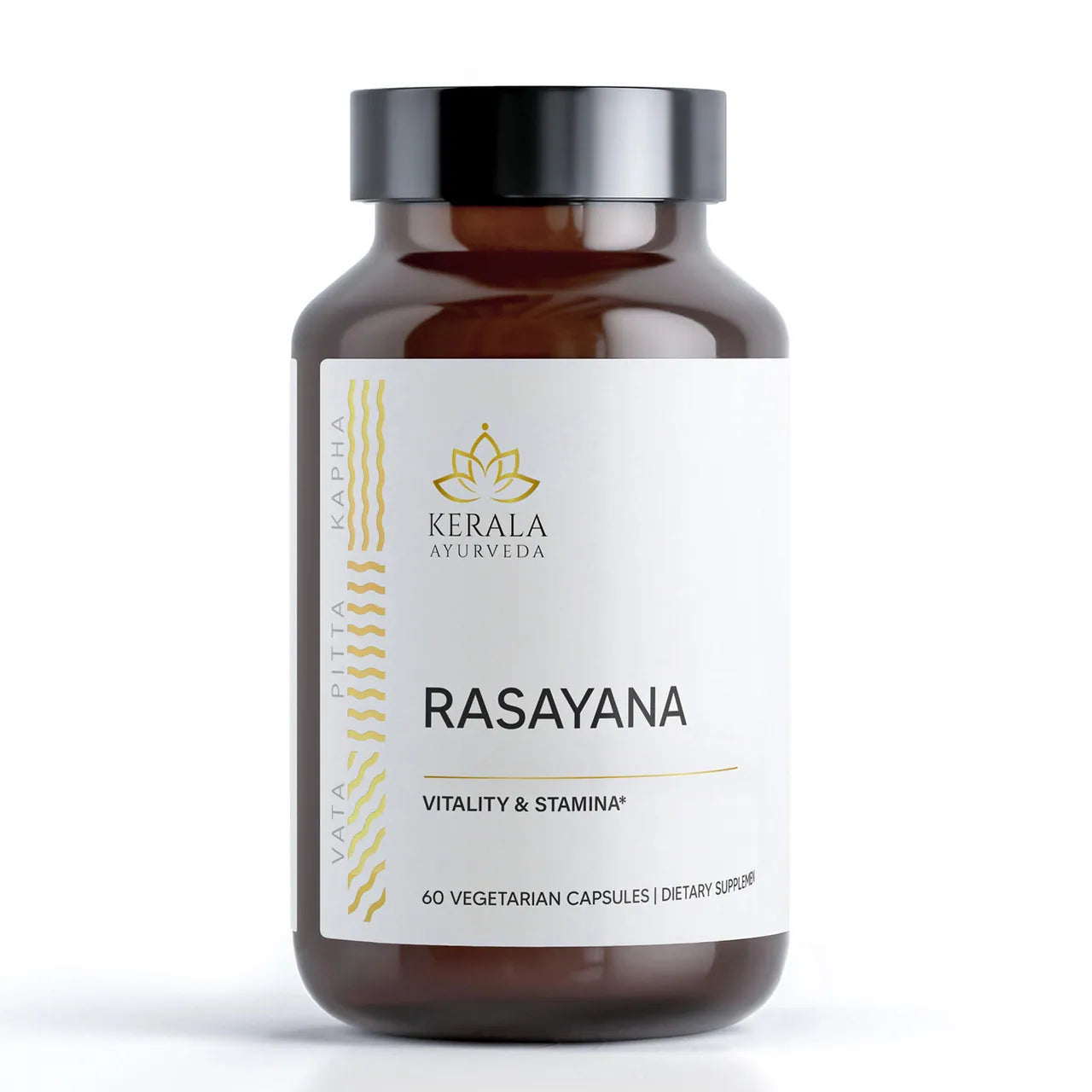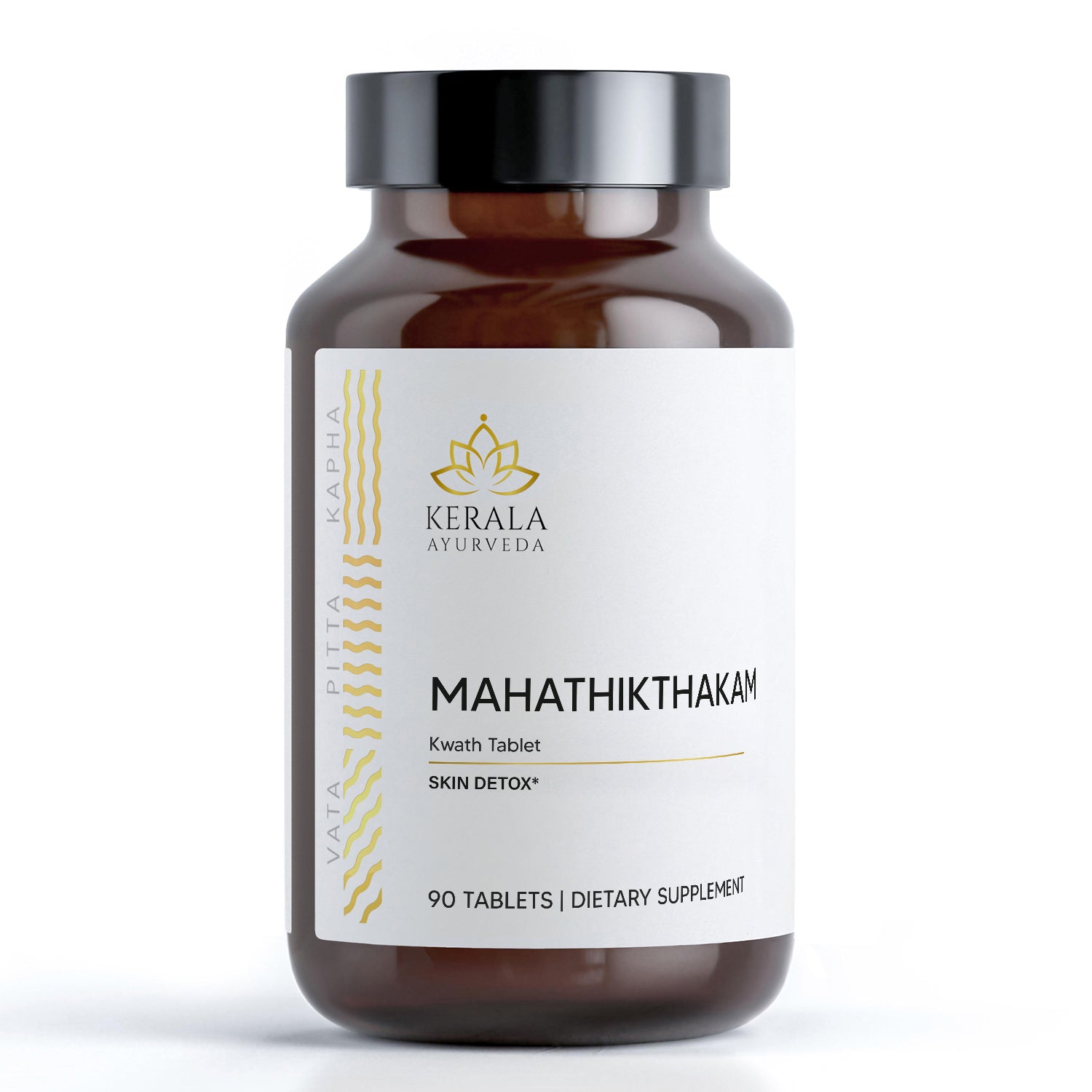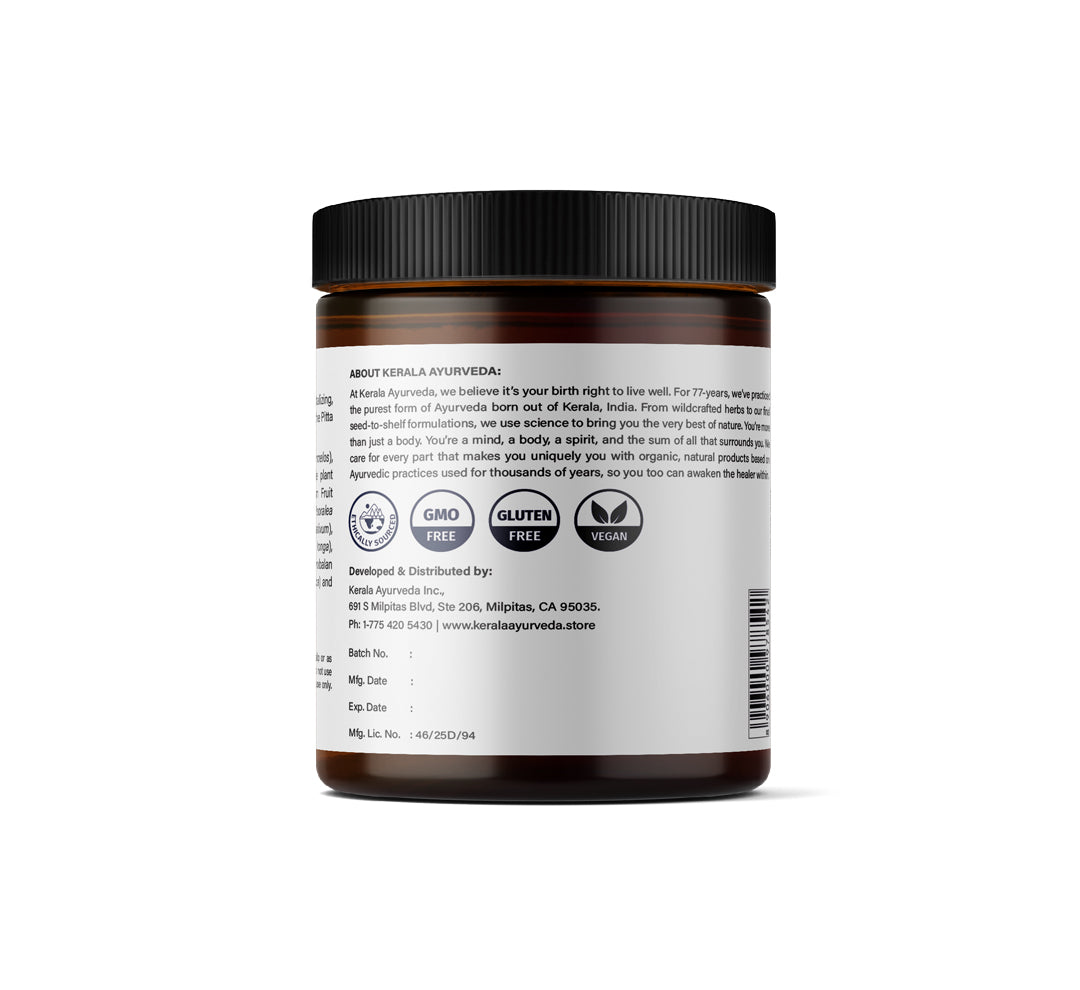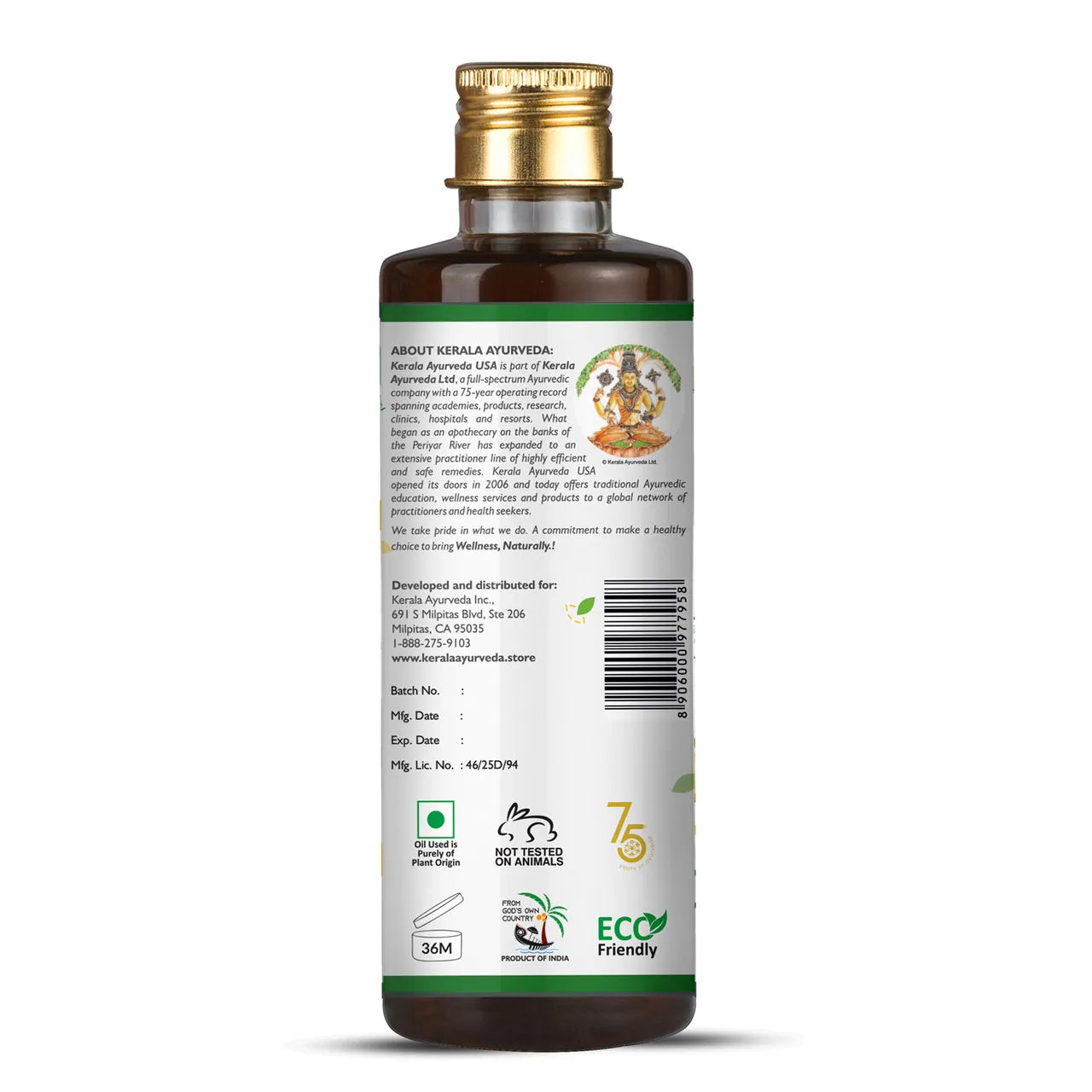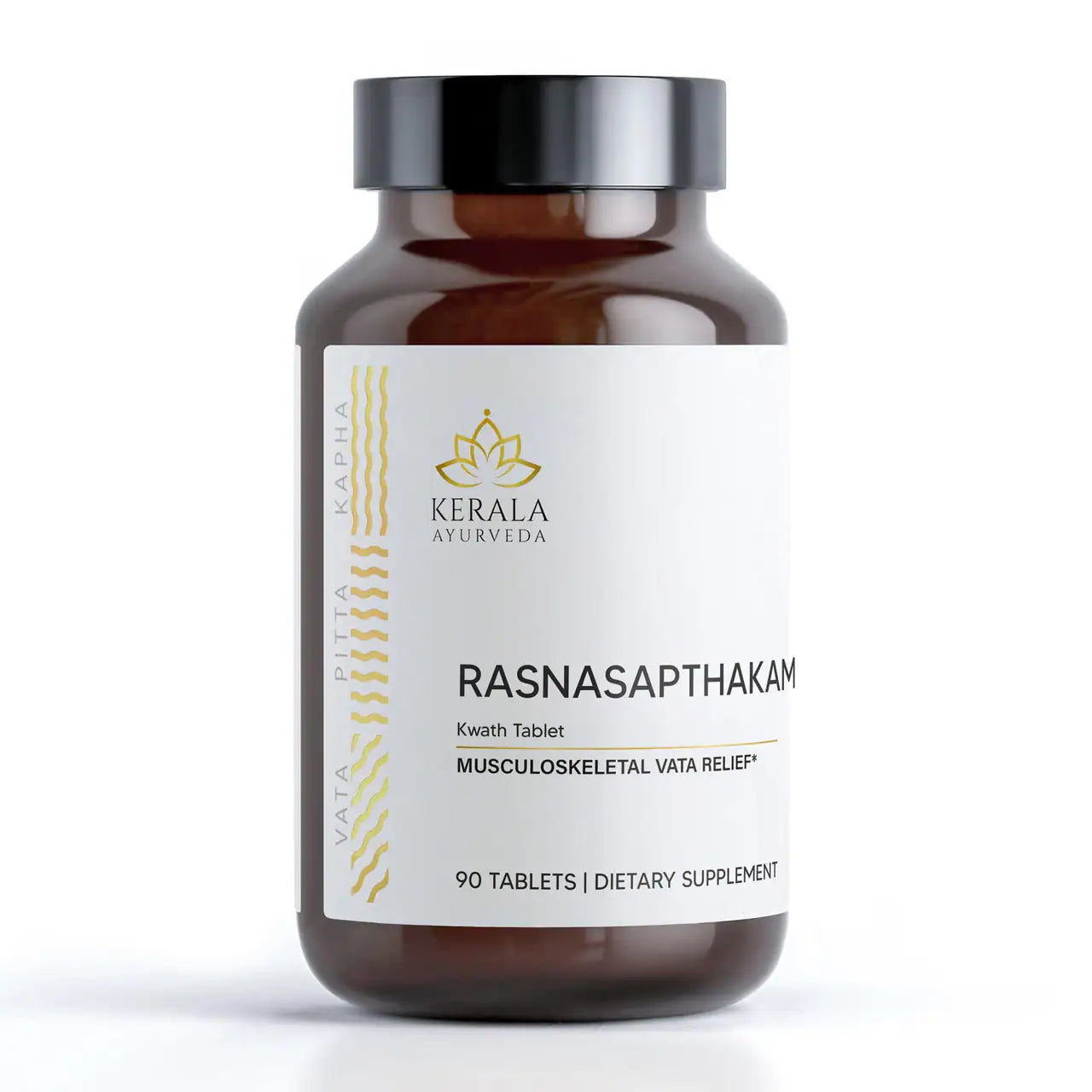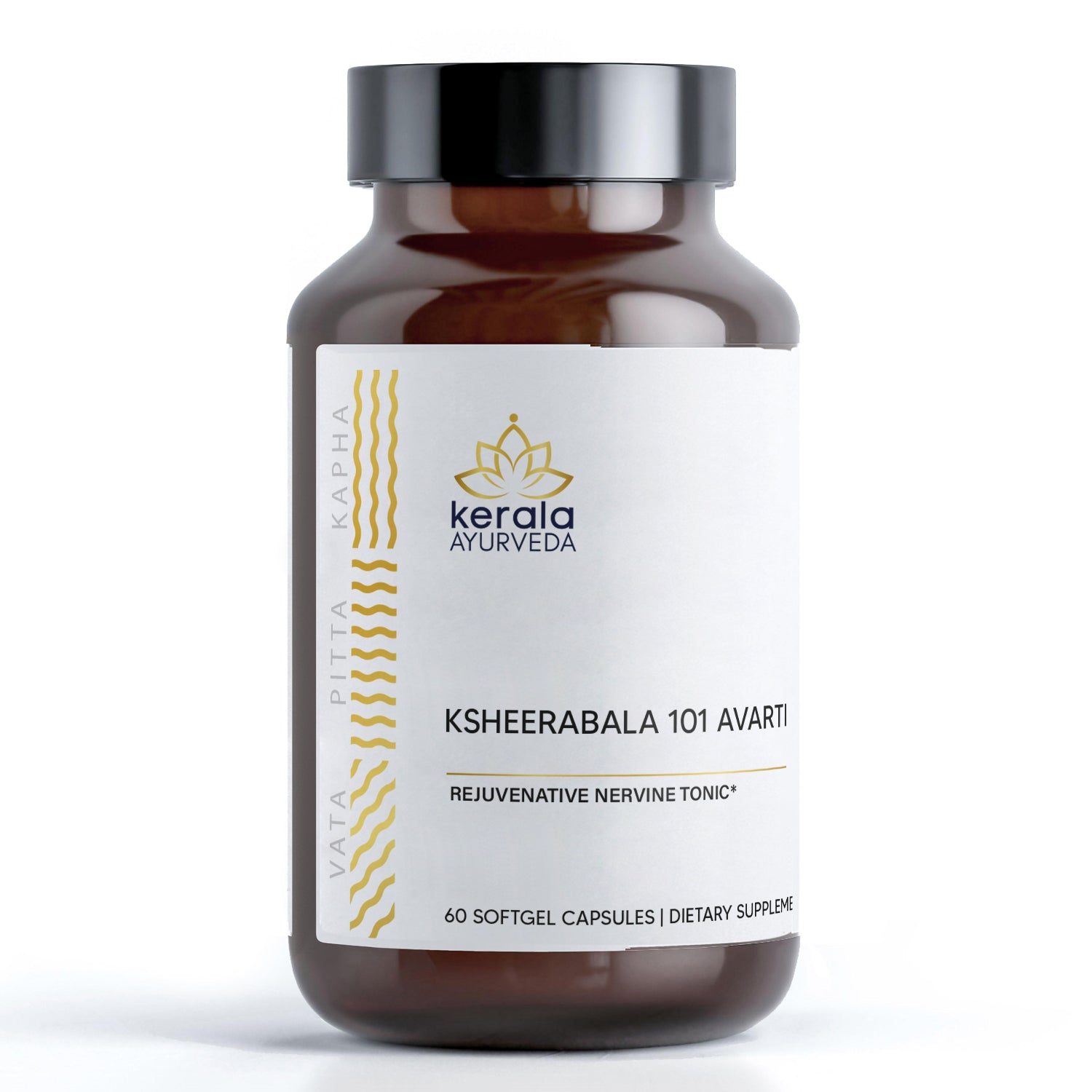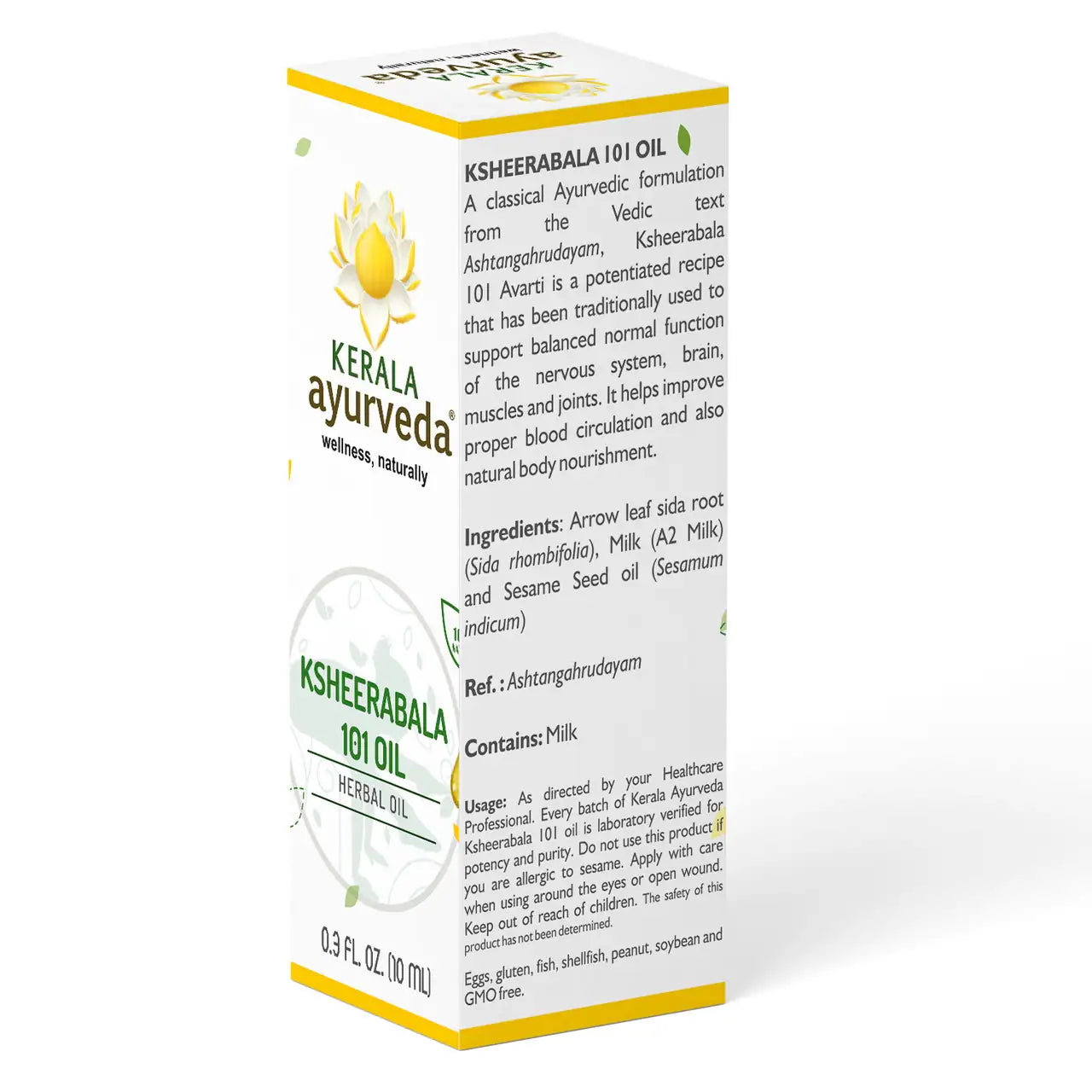Highlights
Ayurveda, originating from ancient India, stands as a holistic system offering diverse methods for managing body weight. In this comprehensive guide we'll thoroughly explore the time-tested principles of Ayurveda, focusing on natural methods to lose weight and introducing a range of supportive herbal products. Let’s embark on this enriching journey toward a healthier and happier you!
1. Understanding Your Unique Mind and Body Type
Ayurveda acknowledges three core energies or Doshas: Vata, Pitta, and Kapha. These Doshas exist in varying proportions within each individual, shaping their physical form, mental attributes, and overall wellness. Recognizing your primary Dosha is pivotal in devising tailored strategies for managing body weight.
How Dosha Influences Body Weight and Metabolism
Vata: Dominant Vata Dosha individuals usually have a slender physique. Challenges might arise due to irregular digestion and metabolism. Balancing Vata involves embracing nourishing foods, warm spices, and grounding practices.
Pitta: Individuals with a dominant Pitta Dosha often possess a moderate build and robust digestion. However, excess Pitta can lead to inflammation and weight gain. Cooling foods, stress management, and mindful eating are vital to balance Pitta.
Kapha: The Kapha Dosha is linked with a sturdy, heavier body frame. Sluggish metabolism and water retention can contribute to weight gain. Exercising regularly, consuming light foods, and keeping warm are beneficial for Kapha balance.
Personalized Weight Management
Understanding your primary Dosha enables customizing lifestyle choices:
Vata: Prioritize warm, nourishing meals. Establishing regular routines and incorporating gentle exercises are crucial.
Pitta: Opt for cooling foods, avoid excessive heat, and adopt moderation in various aspects of life.
Kapha: Engage in vigorous physical activities, eat light foods, and maintain a consistent daily routine.

2. The Power of Routines
Sleep: Prioritize Restful Nights
Aim for 7-8 hours of uninterrupted sleep each night. Craft a calming bedtime routine by dimming lights, avoiding screens, and practicing relaxation techniques to facilitate hormonal balance and overall well-being.
Meal Times: Consistency Matters
Consuming meals at regular intervals helps maintain stable blood sugar levels and supports efficient digestion. Avoid skipping meals or late-night snacking.
Exercise: Tailor to Your Dosha
Customizing your exercise regimen according to your dominant Dosha is pivotal:
Vata Types: Grounding exercises such as yoga, tai chi, and walking help stabilize Vata energy.
Pitta Individuals: Thrive on moderate-intensity workouts like swimming, cycling, or dancing.
Kapha Types: Vigorous activities like running, strength training, or high-intensity interval training (HIIT) are instrumental in boosting metabolism.

3. Ancient Principles for Mindful Eating
Mindful Eating: Savor Each Bite
Mindful eating extends beyond mere consumption; it's a practice rooted in presence and gratitude. Here's how to embrace it:
Be Present: Eliminate distractions and focus on your meal. Engage your senses—smell the aromas, appreciate the colors, and feel the textures.
Chew Thoroughly: Take your time to chew each bite thoroughly. Effective digestion begins in the mouth, enhancing nutrient absorption.
Listen to Hunger Cues: Pay attention to your body's hunger and fullness signals. Eat when genuinely hungry and stop when satisfied.
Rasas (Tastes) and Emotional Eating
Ayurveda recognizes six tastes, each influencing the body and mind differently:
-
Sweet: Nourishing and grounding. Found in grains, fruits, and dairy.
-
Sour: Stimulates digestion. Present in citrus fruits, yogurt, and fermented foods.
-
Salty: Balances Vata and enhances flavor. Use high-quality rock salt in moderation.
-
Bitter: Detoxifying and cooling. Found in leafy greens, turmeric, and bitter herbs.
-
Pungent: Increases metabolism. Includes spices like ginger, garlic, and chili.
-
Astringent: Drying and light. Present in legumes, green apples, and lentils.
During stress, there's a tendency to crave sweet or salty foods. Being aware helps you to make mindful choices.
Tailoring Diet Based on Dosha
Your Dosha greatly influences dietary preferences:
Vata: Favor warm, nourishing foods such as cooked grains, root vegetables, and herbal teas.
Pitta: Opt for cooling foods like fresh salads, coconut water, and sweet fruits that soothe Pitta.
Kapha: Choose light, spicy foods such as lentils, leafy greens, and warming spices to support Kapha balance.

4. Herbal Remedies to Support Weight
At-Home Herbs for Weight Management
Incorporating specific herbs into your daily routine can significantly enhance weight balance. Consider these potent options:
-
Ginger: This fiery root boosts metabolism, aids digestion, and adds warmth to your system. Add it to teas, soups, or stir-fries.
-
Triphala: A classic Ayurvedic blend, Triphala cleanses the digestive system, supports regular bowel movements, and promotes overall wellness. It can be taken as a powder or in capsule form.
-
Trikatu: A powerful trio of ginger, black pepper, and long pepper, Trikatu ignites your digestive fire (Agni) and enhances metabolism. Sprinkle it on meals or consume it with honey.
-
Cumin: Known for its fat-burning properties, cumin seeds aid weight loss. Roast them and use them in cooking or steep them in warm water for a refreshing drink.
-
Guggul: Derived from the resin of the Commiphora Mukul tree, Guggul helps maintain healthy weight by supporting lipid metabolism. Consult our practitioner for the proper dosage.
Ayurvedic Formulations
Explore these Ayurvedic blends that synergistically promote weight balance and overall well-being:
Shilajit: A mineral-rich substance that supports energy, vitality, and metabolism.
Active Digest: Enhances digestion, reduces bloating, and ensures nutrient absorption.
Triphala: As mentioned earlier, Triphala is a versatile formulation for digestive health.
5. Manage Stress and Practice Yoga
Oiling and Massage: Nourish Your Body
Regular self-massage with warm oils is a soothing practice beneficial for both the body and mind. Here's how it helps manage stress:
-
Improved Circulation: Massaging warm oils into your skin enhances blood flow, relaxes muscles, and eases tension, providing a comforting sensation for your body.
-
Stress Reduction: The rhythmic motion of massage triggers the body’s relaxation response, reducing cortisol levels, anxiety, and promoting overall well-being.
-
Self-Care Ritual: Dedicate time for self-massage as an act of self-love. Choose oils like sesame, coconut, or almond, and gently massage from head to toe.
Supportive Yoga Practices: Find Your Inner Calm
Yoga offers various stress-relieving practices. Incorporate these into your routine for a balanced lifestyle:
-
Calming Poses: Explore poses like Child’s Pose (Balasana), Legs-Up-the-Wall Pose (Viparita Karani), and Corpse Pose (Savasana) for relaxation and energy restoration.
-
Breathing Techniques (Pranayama): Practice deep breathing and Alternate Nostril Breathing (Nadi Shodhana) to balance energy and reduce stress.
- Mindfulness Meditation: Sit comfortably, close your eyes, and focus on your breath. Allow thoughts to come and go without judgment

6. Detox, Cleansing, and Panchakarma
Importance of Regular Detoxification
Detoxifying your body is akin to hitting the reset button, offering several benefits:
Toxin Removal: Our bodies accumulate toxins from the environment, processed foods, and stress over time. Detoxification aids in eliminating these unwanted substances.
Weight Loss Support: A well-functioning detox system optimizes metabolism and promotes fat breakdown, aiding in weight loss.
Seasonal Cleansing: Consider seasonal detox programs, such as our Spring Cleanse and Fall Rejuvenation, aligning with nature’s cycles for overall well-being.
Panchakarma: Professional Detoxification
Panchakarma, an ancient Ayurvedic therapy, offers a comprehensive approach to deep detoxification. It involves various components:
Abhyanga (Oil Massage): Warm oil massages improve circulation, release tension, and aid in toxin elimination.
Swedana (Herbal Steam): Herbal steam treatments open pores, promote sweating, and facilitate toxin removal.
Virechana (Purgation): Controlled purgation eliminates excess Pitta and toxins from the digestive system.
Nasya (Nasal Administration): Nasya oil treatments clear nasal passages, support respiratory health, and remove toxins.
Basti (Enema): Herbal enemas cleanse the colon, balance Vata, and enhance overall detoxification.
At-Home Detox: Try Our Detox Bundle
Follow these guidelines for a safe and effective at-home detox:
Hydrate: Drink plenty of water to flush out toxins effectively.
Eat Light: Opt for simple, nourishing meals to support the detox process.
Rest: Allow your body to rejuvenate and recover during the detoxification journey.
7. Aim for Sustainable Strategies
Emphasize Long-Term Lifestyle Changes
Avoid Crash Diets: Instead of drastically restricting calories, opt for balanced, nourishing meals. Crash diets can disrupt hunger hormones, leading to rebound weight gain.
Gradual Changes: Set realistic goals to gradually lose weight, about 1-2 pounds per week. Small, consistent steps make a significant difference over time.
Celebrate Progress: Acknowledge and celebrate each milestone achieved along the way, whether it's feeling more energetic or achieving a personal goal.

Recap of Ayurvedic Principles for Lasting Weight Balance
Remember the Doshas
Understanding your dominant Dosha is pivotal for personalized weight management strategies.
Vata: Prioritize warm, nourishing foods and routines.
Pitta: Opt for cooling foods and stress management techniques.
Kapha: Choose light, spicy foods and engage in vigorous activities.
Mindful Eating Matters
-
Be present during meals. Savor each bite mindfully.
-
Balance the six tastes (Rasas) in your diet: sweet, sour, salty, bitter, pungent, and astringent.
-
Tailor your diet based on your Dosha.
Herbal Support
Incorporate these herbs to support weight management:
-
Ginger: Boosts metabolism.
-
Triphala: Cleanses the digestive system.
-
Trikatu: Enhances metabolism.
-
Cumin: Supports fat metabolism.
-
Guggul: Helps maintain healthy weight.
Stress Management and Yoga
-
Regular self-massage with warm oils.
-
Practice calming yoga poses, deep breathing, and meditation.
Detoxification
-
Regular detox removes accumulated toxins.
-
Explore professional Panchakarma treatments.
-
Try our Detox Bundle at home.
Sustainable Strategies
-
Avoid crash diets; focus on gradual changes.
-
Celebrate progress and set realistic goals.
Remember, Ayurveda offers timeless wisdom for holistic weight management to help you lose weight. Consult our qualified practitioner to embark on this natural journey!







